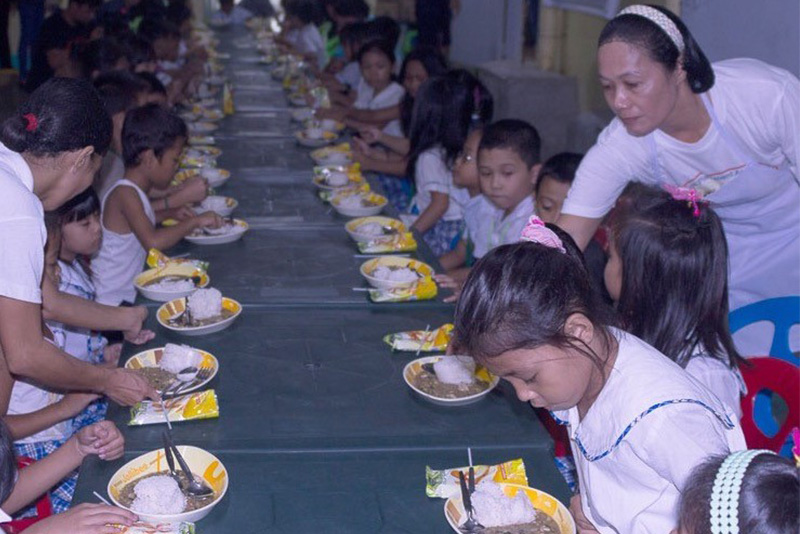DepEd expands feeding program from 120 days to full school year

MANILA, Philippines — The Department of Education will expand its school-based feeding program next school year, providing free meals to students for the entire academic calendar (220 days) for the first time.
The expanded feeding program will also bring back the provision of hot meals and increase the distribution of nutritional milk products, DepEd Assistant Secretary Dexter Galban said during the launch of the department’s school-based feeding program.
Funding for DepEd’s school-based feeding program doubled in 2024, going up to a record high of P11.7 billion from the previous year’s P5.6 billion.
Lawmakers deliberating on the national budget were informed by education officials that students tended to revert to a malnourished state if they only received school meals for 120 days.
The higher funding for this year, Galban said, is meant to retain the positive gains of the school-based feeding program even during school breaks.
“Based on the feedback and insights from our learners on the school-based feeding program more than 57% said they felt more enthusiastic to be in school,” Galban said.
Over 52% of students gained weight while 45% said they noticed an improvement in their health and wellbeing, Galban added.
During the COVID-19 pandemic, lockdown restrictions made DepEd shift the focus of its school-based feeding program from hot meals to nutritious food products, which include ready-to-eat food products like the enhanced Nutribun produced by the Department of Science and Technology’s Food Nutrition and Research Institute.
For 2024, schools will once again provide public school students with hot meals and allow for milk products to be served for 55 days.
While hot meals are more costly and difficult to keep from spoilage, these may be more advantageous for undernourished children as these are prepared with fresh ingredients and are said to hold a broader range of vitamins and minerals, according to a 2020 study published in the journal Systematic Reviews that reviewed the impact of school meals on learning outcomes.
Galban said that the higher funding this year will also allow the department to raise the per-meal budget for each learner. In 2024, each meal given to students will cost P25 per day for 220 days.
Based on the latest data from the DOST-FNRI, undernutrition remains a serious problem among Filipino children aged 5 to 10.
About 2.7 million children, or one in five, suffer from stunting, which means they are too short for their age and may have impaired cognitive and physical development.
Additionally, about 2.8 million children, or more than one in five, are underweight, and an estimated 1 million children, or 7%, are wasted or suffering from severe acute malnutrition. — Cristina Chi
- Latest
- Trending































